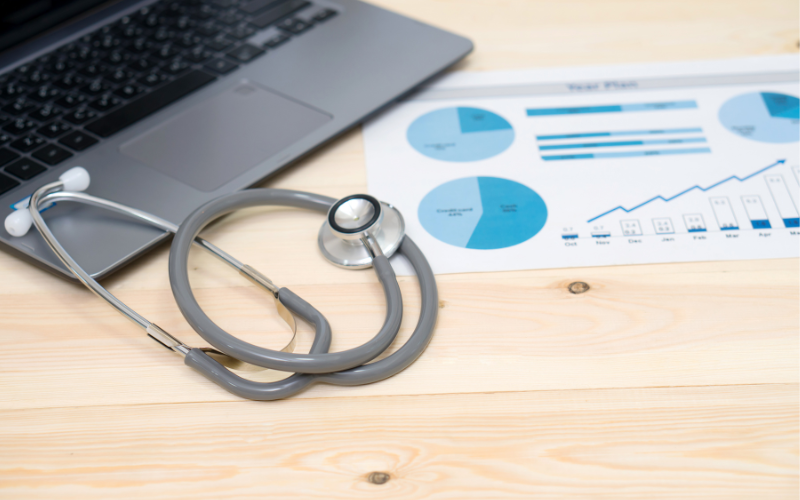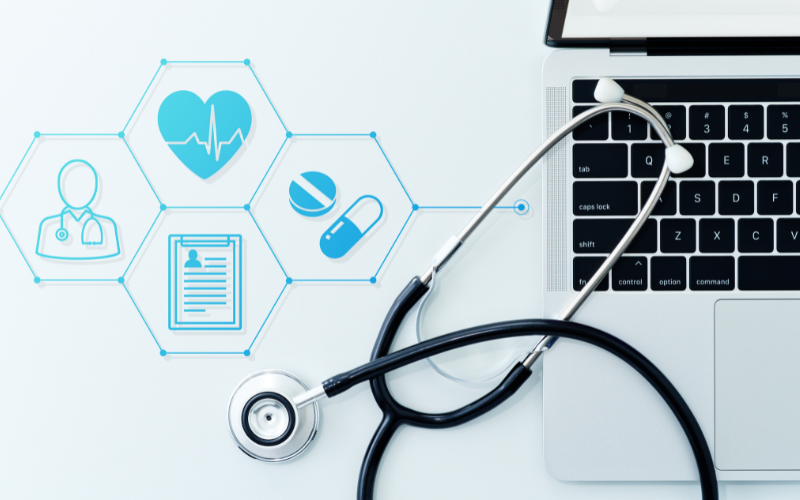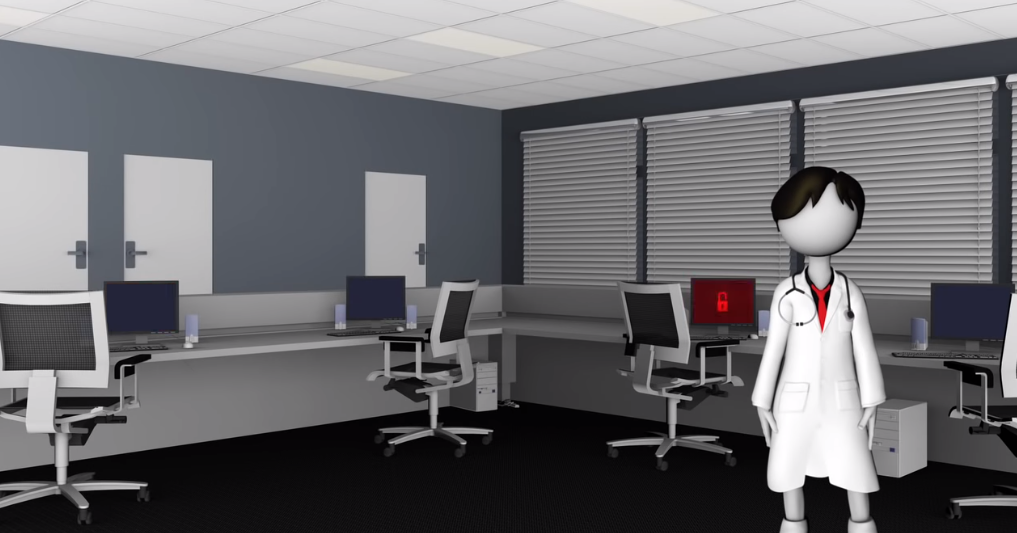Growing Importance of Encrypted Healthcare Data

The importance of encrypted healthcare data is growing rapidly due to the increasing amount of sensitive patient information being stored and transmitted electronically. Encryption is the process of converting data into a code that can only be deciphered with a key or password, making it much more difficult for unauthorized individuals to access or steal this information. In healthcare, encrypted data is critical for protecting patient privacy and ensuring the security of their personal health information.
Need For Robust Backup Systems in the Healthcare Industry

The healthcare industry relies heavily on technology to store and manage patient information. However, technology can fail, and data can be lost or corrupted. This is why having a robust backup system in place is crucial for healthcare providers. A backup system ensures that patient data is not lost in the event of a system failure or cyberattack. It also allows healthcare providers to quickly recover data in the event of a disaster.
Understanding Encrypted Healthcare Data
Encryption is a critical aspect of securing healthcare data. Encryption is the process of converting data into code that can only be deciphered with a decryption key. This ensures that only authorized individuals can access patient information, even if the data is intercepted by hackers or other unauthorized parties.
In addition to encryption, healthcare providers must also implement other security measures such as firewalls, antivirus software, and access controls to protect patient data.
Defining Encrypted Healthcare Data
Encrypted healthcare data refers to patient information that has been converted into a coded format that can only be accessed with a decryption key. This process helps to ensure the privacy and security of patient data, as it prevents unauthorized individuals from accessing the information even if it is intercepted or stolen. Encryption is a critical component of healthcare data security, and it is often required by law to protect patient confidentiality.
Challenges Associated With Managing Encrypted Data
There are several challenges associated with managing encrypted healthcare data. One of the biggest challenges is ensuring that the decryption keys are kept secure and only accessible to authorized individuals. If a decryption key falls into the wrong hands, it could compromise the privacy and security of patient data. Another challenge is ensuring that the encryption and decryption processes do not slow down the access to patient data.
Role of Backup Systems in Healthcare Data Security

Backup systems play a crucial role in healthcare data security by providing redundancy and ensuring that data is always available, even in the event of a security breach or system failure. Backup systems can also help protect against data loss due to human error or natural disasters. It is important for healthcare organizations to regularly test their backup systems to ensure they are functioning properly and can quickly restore data if needed. Additionally, backup systems should be encrypted to ensure the security and privacy of patient data.
How Backup Systems Contribute to Data Protection
Backup systems play a crucial role in data protection for healthcare organizations. They provide a way to securely store and recover important patient data in the event of a security breach or system failure. By having a backup system in place, healthcare organizations can ensure that they can quickly restore data and minimize any potential damage or loss. Moreover, backup systems help protect against data loss due to human error or natural disasters.
Ensuring Data Availability And Integrity Through Backups
Backups are essential for healthcare organizations to ensure the availability and integrity of their data. By regularly backing up data, healthcare organizations can ensure that they have a copy of important patient information in case of system failure, security breaches, or other unexpected events. This helps to minimize the risk of data loss and ensures that critical patient information is always available when needed. In addition to providing a way to recover data in case of an emergency, backups also help to ensure the integrity of the data.
Risks and Threats to Encrypted Healthcare Data

Encrypting healthcare data is an important step in protecting patient privacy and preventing unauthorized access to sensitive information. However, even encrypted data can be vulnerable to certain risks and threats. One potential risk is the use of weak encryption methods or keys. If the encryption is not strong enough, it can be easily cracked by hackers or other malicious actors. Similarly, if the encryption key is not properly secured, it can be stolen or compromised, allowing unauthorized access to the encrypted data.
External Threats To Encrypted Healthcare Data
External threats to encrypted healthcare data can come from a variety of sources, including hackers, cybercriminals, and other malicious actors. These threats can range from attempts to steal sensitive information for financial gain, to efforts to disrupt healthcare systems and cause chaos. One common type of external threat to encrypted healthcare data is a cyberattack. Cyberattacks can take many forms, including phishing emails, malware infections, and ransomware attacks.
Internal Risks And Vulnerabilities Within Healthcare Organizations
It can also pose a threat to encrypted healthcare data. These risks may include human error, such as accidental deletion or misconfiguration of encryption settings, or deliberate actions by employees or contractors with access to sensitive data. Insider threats can be particularly challenging to detect and prevent, as they may involve trusted individuals who have legitimate access to healthcare data. Healthcare organizations need to implement strong access controls and monitoring systems to prevent unauthorized access and detect any suspicious activity.
Consequences of Data Breaches in The Healthcare Sector
Data breaches in the healthcare sector can have serious consequences for both the organization and the individuals whose data has been compromised. Some potential consequences include:
1. Financial costs: Healthcare organizations may face significant financial costs as a result of a data breach. This can include the cost of investigating the breach, notifying affected individuals, providing credit monitoring services, and potential legal fees or fines.
2. Damage to reputation: A data breach can damage a healthcare organization’s reputation, particularly if it is perceived as being negligent in securing data.
Data Recovery Strategies for Encrypted Healthcare Data
There are several strategies that healthcare organizations can implement to recover encrypted data in the event of a breach:
1. Backup and recovery: Regularly backing up encrypted data and having a plan for recovery in case of a breach can help minimize the impact of a data breach.
2. Encryption key management: Proper management of encryption keys can help ensure that encrypted data can be recovered in case of a breach.
Techniques for Recovering Encrypted Healthcare Data
When it comes to recovering encrypted healthcare data, there are a few techniques that can be used:
1. Brute force attack: This involves trying every possible combination of characters until the correct decryption key is found. However, this method can be time-consuming and may not be successful if the encryption is strong.
2. Dictionary attack: This involves using a pre-compiled list of commonly used passwords and phrases to try and guess the decryption key.
Best Practices For Successful Data Recovery
When it comes to successful data recovery, there are a few best practices that can be followed:
1. Back up your data regularly: This ensures that you always have a copy of your data that can be easily restored in case of data loss.
2. Use strong encryption: Strong encryption algorithms make it difficult for hackers to decrypt your data.
3. Use a strong password: A strong password with a combination of characters, numbers, and symbols can make it difficult for hackers to guess your password.
Cloud-Based Backup Solutions for Healthcare Data
Cloud-based backup solutions are becoming increasingly popular for healthcare data because they offer a secure and cost-effective way to store and protect sensitive patient information. Here are some benefits of using cloud-based backup solutions for healthcare data:
1. Increased security: Cloud-based backup solutions often use advanced encryption technologies and security protocols to protect data from unauthorized access and cyber threats.
2. Easy accessibility: Cloud-based backup solutions allow healthcare providers to access patient data from anywhere, at any time, as long as they have an internet connection.
Ensuring Security And Privacy in the Cloud
Cloud-based backup solutions have become increasingly popular in the healthcare industry due to their ability to provide secure and reliable storage for patient data. However, it is important to ensure that security and privacy measures are in place to protect this sensitive information. One way to ensure security is by using strong encryption methods to protect data both in transit and at rest. This can include using advanced encryption algorithms such as AES-256, as well as implementing secure access controls and multi-factor authentication.
FAQs
How frequently should healthcare data backups be performed?
The frequency of healthcare data backups can vary depending on the specific needs and requirements of the healthcare organization. However, it is generally recommended to perform backups regularly, such as daily or weekly, to ensure that data is not lost in the event of a system failure or other unexpected events. It is also important to regularly test backups to ensure that they can be successfully restored if needed.
Are there specific regulations that govern backup systems in the healthcare sector?
Yes, some regulations govern backup systems in the healthcare sector. The Health Insurance Portability and Accountability Act (HIPAA) requires healthcare organizations to have contingency plans in place, which includes regular data backups, to protect against data loss and ensure the availability and integrity of electronically protected health information (ePHI). The backup systems must also meet HIPAA’s security and privacy requirements, such as encryption and access controls, to protect the confidentiality of patient information.
Can backup systems guarantee 100% data recovery in case of a breach?
While backup systems can greatly increase the chances of data recovery in case of a breach or data loss, they cannot guarantee 100% data recovery. This is because various factors can affect the success of data recovery, such as the severity of the breach or data loss, the effectiveness of the backup system, and the timeliness of the response to the incident.
Is cloud-based backup more secure than on-premises solutions?
The security of cloud-based backup versus on-premises solutions depends on various factors, such as the security measures implemented by the cloud provider and the level of security of the on-premises solution. Generally, reputable cloud providers have robust security measures in place to protect their clients’ data, such as encryption, access controls, and regular security audits. On the other hand, on-premises solutions may require more resources and expertise to maintain and secure and may be more vulnerable to physical threats.
Conclusion
In conclusion, backup systems play a crucial role in securing encrypted healthcare data. They provide a safety net in case of data loss or corruption, ensuring that critical information is not permanently lost. It is important for healthcare organizations to implement robust backup systems and regularly test them to ensure they are functioning properly. Additionally, it is important to have a disaster recovery plan in place to quickly restore operations in the event of a major data loss.
